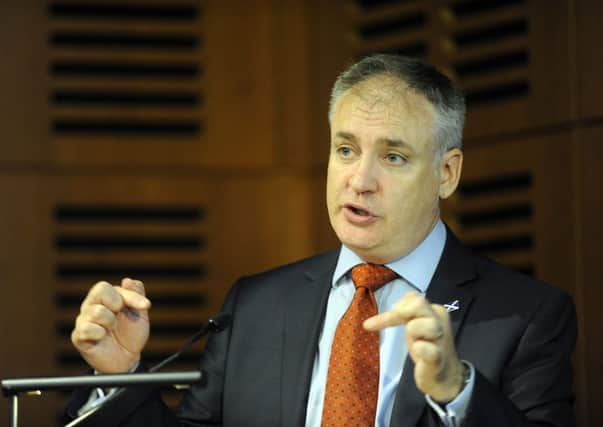EU leaders urged to prioritise Scottish mackerel


Scotland exports about £45 million of food and drink a year to Russia, but last month the country brought in a ban on food imports from the west.
In Scotland the mackerel industry, which exports £16 million-worth of produce to Russia each year, is likely to be hardest hit by this.
Advertisement
Hide AdAdvertisement
Hide AdAn extraordinary meeting of the European Union’s Agrifish Council will be held in Brussels today to discuss the situation.
Mr Lochead will urge EU leaders to allow fishermen to carry forward 10% of their annual quota into next year - part of a five-point plan the Scottish Government agreed with mackerel fishermen to counter the worst effects of the Russian trade embargo.
The Rural Affairs Secretary said: “Scotland’s pelagic industry is one of the sectors worst affected by the Russian trade sanctions and this must be taken into account in any response measures brought forward by the EU.
“I have already asked the European Commission to make this sector a priority and will do so again in Brussels today.
“I have asked to address the Council directly so that my European counterparts can hear first-hand the significant impact this ban is having on Scotland’s pelagic sector.”
Speaking ahead of the meeting, Mr Lochhead added: “I also look forward to receiving an update on the wider impact of the Russian sanctions on food production across the EU.
“Although the volumes of agricultural exports directly from Scotland to Russia comprise a relatively small proportion of overall exports, we need to be able to understand what the ban will mean for Scotland in terms of displacement and knock-on impacts on prices and internal European markets.”
Russia’s import ban on food products includes fish and seafood, beef, pork, poultry, cured meats, sausages, milk and dairy products, and fruit and vegetables, but not alcohol.
Advertisement
Hide AdAdvertisement
Hide AdIt was introduced following the imposition of economic sanctions by the EU and US in the wake of the suspected shooting down of Flight MH17 by separatists.
It covers imports from the EU, the US, Australia, Canada and Norway, and is due to last for one year.